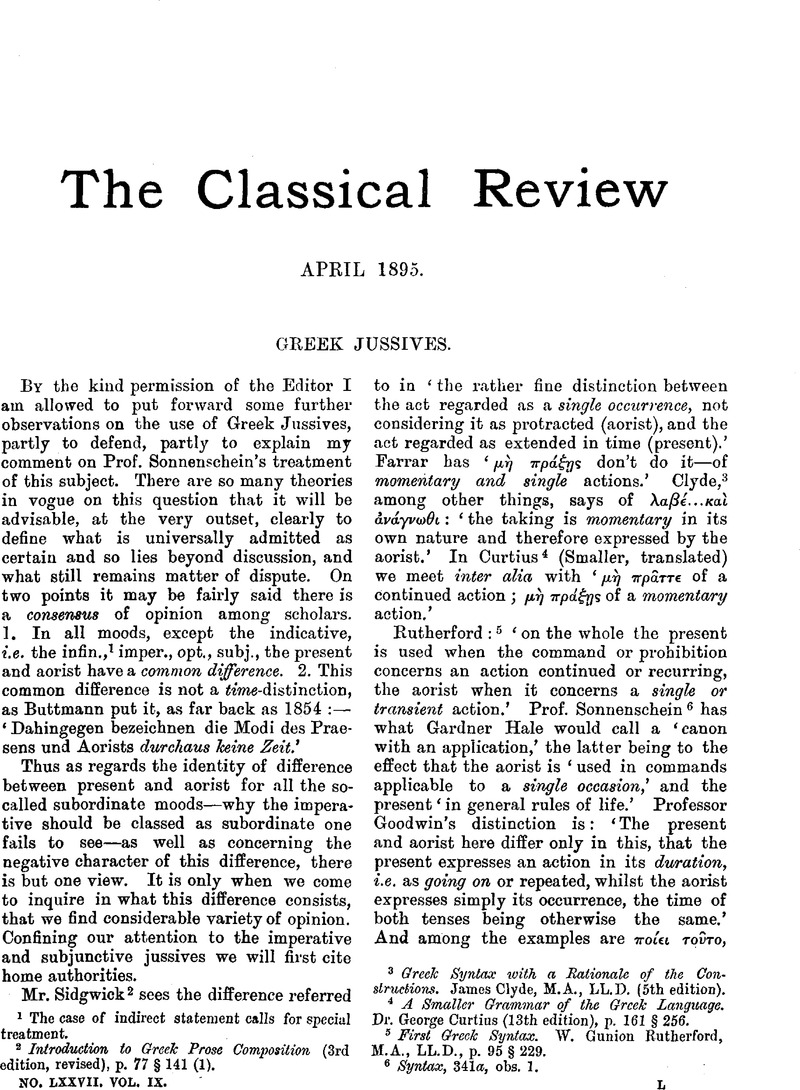No CrossRef data available.
Article contents
Abstract

- Type
- Review Article
- Information
- Copyright
- Copyright © The Classical Association 1895
References
page 145 note 1 The case of indirect statement calls for special treatment.
page 145 note 2 Introduction to Greek Prose Composition (3rd edition, revised), p. 77 § 141 (1).
page 145 note 3 Greek Syntax with a Rationale of the Constructions. James Clyde, M.A., LL.D. (5th edition).
page 145 note 4 A Smaller Grammar of the Greek Language. Dr. George Curtius (13th edition), p. 161 § 256.
page 145 note 5 First Greek Syntax. W. Gunion Rutherford, 11.A., LL.D., p. 95 § 229.
page 145 note 6 Syntax, 341a, obs. 1.
page 146 note 1 Moods and Tenses § 87. This and Professor Sonnenschein's canon will be more fully dealt with when we come to discuss German views.
page 147 note 1 Groups 2 and 3 were supplied me by the Rev. St. de Dunin-Borkowski, whose theory of jussives I hope to discuss in my next article.
page 149 note 1 The last four examples were privately cpmmunicated to me by Mr. de Dunin-Borkowski.


